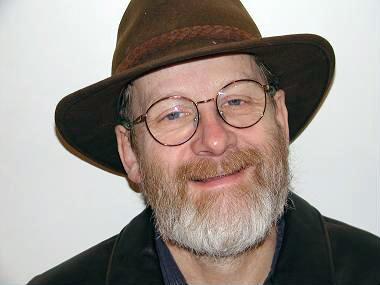
Short
Introduction:
Peter
Philips received his B.A from Pomona College (1970) and his Ph.D. from Stanford University
(1980). He is a Professor of Economics
at the University
of Utah. He is a labor economist and economic
historian. His research focuses on the
construction industry. Philips is a
respected expert on prevailing wage laws and on employment, training, wages,
benefits and safety in the construction industry. He has many academic publications to his
credit. He has also served as an expert
on the construction industry for the U.S. Labor Department and the U.S. Justice
Department. He has testified before many
state legislatures on construction regulation issues. His most recent books, Building
Chaos: An International Comparison of Deregulation in the Construction Industry (Routledge Press, 2003) and The Economics
of Prevailing Wage Laws (Ashgate Press 2005) and his most recent journal
articles focus on school construction costs, construction labor market
regulation, fatalities in the construction workplace and the effect of
subcontracting on construction safety.
In the summers, Dr. Philips is a volunteer back-country ranger in the Grand Tetons
National Park. . He is co-editor with Garth Mangum of Three
Worlds of Labor Economics (M.E. Sharpe, 1986) and coauthor of Portable
Pensions for Casual Labor Markets: the Central Pension Fund of the Operating
Engineers (Quorum Books, 1995).
Biography
Peter
Philips grew up in Compton and Pomona, California. He received his B.A. from Pomona College
in 1970 where he majored in economics and received the Leland Backstrand
Graduating Senior Award in Economics.
Philips received his M.A. in
economics (1976) and his PhD in applied economics (1980) from Stanford University. Philips is a Professor of Economics at the University of Utah. He is co-editor with Garth Mangum
of Three Worlds of Labor Economics (M.E. Sharpe, 1986) and coauthor of Portable
Pensions for Casual Labor Markets: the Central Pension Fund of the Operating
Engineers (Quorum Books, 1995). He is also co-editor with Gerhard Bosch of Building
Chaos: An InternationalComparison of the Effects of Deregulation in the Construction Industry
(forthcoming Routledge Press, London).
Philips has published widely on the canning and construction industries in
journals such as Industrial and Labor Relations Review, Industrial
Relations, Business History, the Journal of Economic History,
Historical Methods, The Journal of Economic Literature, The Journal
of Education Finance and the Cambridge Journal of Economics. Philips has been a consultant for the U.S.
Labor Department analyzing the supply of cannery labor in California, and he has worked as an expert
on the Davis-Bacon Act for the U.S. Justice Department. The Davis-Bacon Act
regulates wage payments to construction workers on federal public works. Philips is a respected expert on prevailing
wage laws and on employment, training, wages, benefits and safety in the construction
industry. He has testified before state
legislative committees in Ohio, Indiana, Kansas, Oklahoma, New Mexico and
California on
their state prevailing wage laws. Along
with other researchers at the University
of Utah, Philips has
analyzed the effects of prevailing wage laws on public construction costs,
construction worker incomes, apprenticeship training, worker safety and
minority access to construction work.
Philips
journal publications for 2003 are:
“Race
and Prevailing Wage Laws in Construction Industry, Comment on Thieblot,” (with
Hamid Azari-Rad) Journal of Labor Research, Vol. XXIV No. 1, Winter
2003, pp161-168; “State Prevailing Wage
Laws and School Construction Costs,” (with Hamid Azari-Rad and Mark Prus), Industrial
Relations, Vol. 42, No. 3, July 2003, pp. 445-457; “Organizational Change
and Workers' Safety in the Construction Industry: The Case of Articulated
Subcontracting and Extended Division of Labor,” (with Hamid Azari and Wendine
Thompson-Dawson), Industrial Relations Research Association Series, Annual
Research Volume, Proceedings of the 55th
Annual Meeting, Adrienne E. Eaton, ed., 2003, pp. 240-47; “Building for the
Rich, Broadcasting to the Poor: How the N.B.A. Responded to a Changing
Economy,” Proceedings of the Third International Conference on Sports
Economics, Panhellenic Association of Sports Economics and Managers, with
Cory Sinclair (forthcoming 2003) and "Fatal Injuries to Teenage
Construction Workers in the U.S.," (with Anthony Suruda, Dean Lillquist
and Richard Sesek), American Journal
of Industrial Medicine, Volume 44,
Issue 5 (November 2003) pp. 510-14.
Also
in 2003, Philips published the edited volume Building Chaos: An
International Comparison of the Effects of Deregulation on the Construction,
(co-edited with Gerhard Bosch) Routledge Press, London, 2003, 240pp. index. This book looks at deregulation across
several European, North American and Southeast Asian construction industries.
Philips is the senior labor economist at the University of Utah.
He teaches a wide range of courses in the area of labor economics, labor
law and collective bargaining. He also
teaches econometrics and economic history.
Philips has received awards for his teaching and community service,
including University of Utah Public Service Professorship, the University of Utah
Presidential Teaching Scholar Award and the University of Utah,
College of Social and Behavior Science Superior
Teacher Award. Philips is married with two children.
